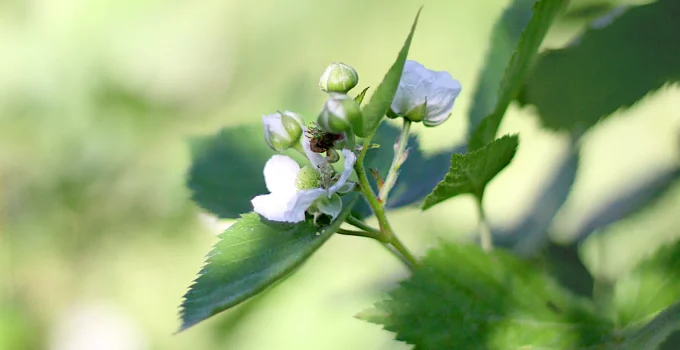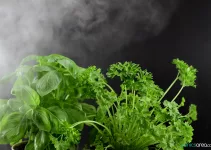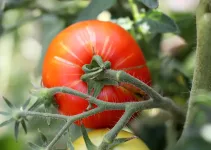The answer to the question of when do blackberries bloom actually depends on where you live.
However, if we were to give a general answer, we would say that blackberries start blooming in mid-April to early May.
Blackberry plants are quite famous for the fact that blooms are produced later than for other fruit plants. Thus, if you feel like your plant isn’t showing any signs of wanting to produce some blooms and fruits, then you need to give it a bit more time.
For example, I am well off on my way of being sick of eating raspberries by the time I get the chance to admire my bountiful harvest of blackberries.
Blackberries tend to ripen a bit later than blueberries or raspberries.
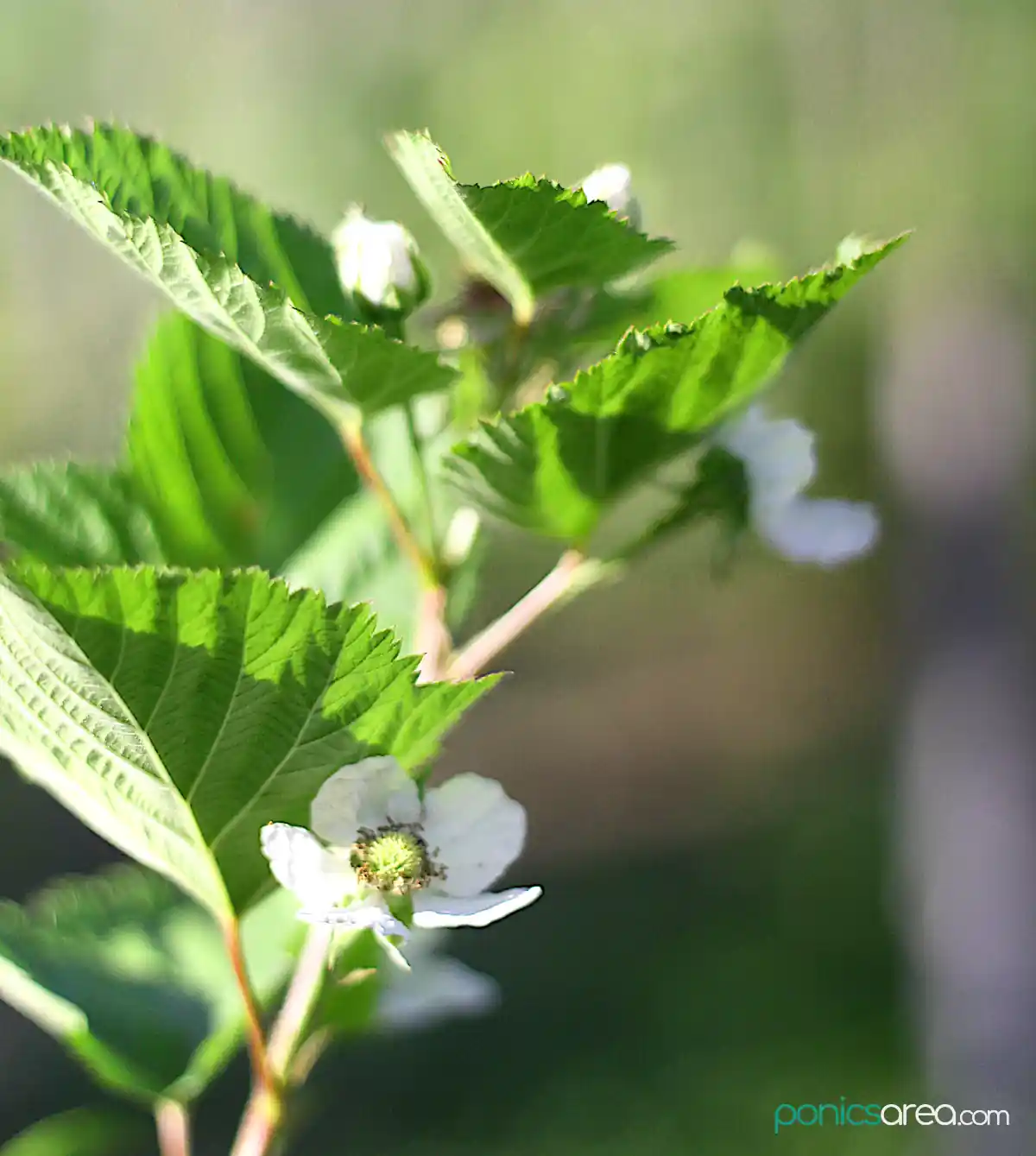
Depending on where we live and how the season is going, weather conditions and all that, we can expect to harvest blackberries from mid-June to early October.
Blueberries can be expected to be ready for harvest from early June to early August. Pretty much the same goes from raspberries.
All three harvesting periods can overlap for a couple of weeks but we will be harvesting blackberries longer after we’re done with raspberries and blueberries.
Table of Contents
When Do Blackberries Bloom? Fruit Development
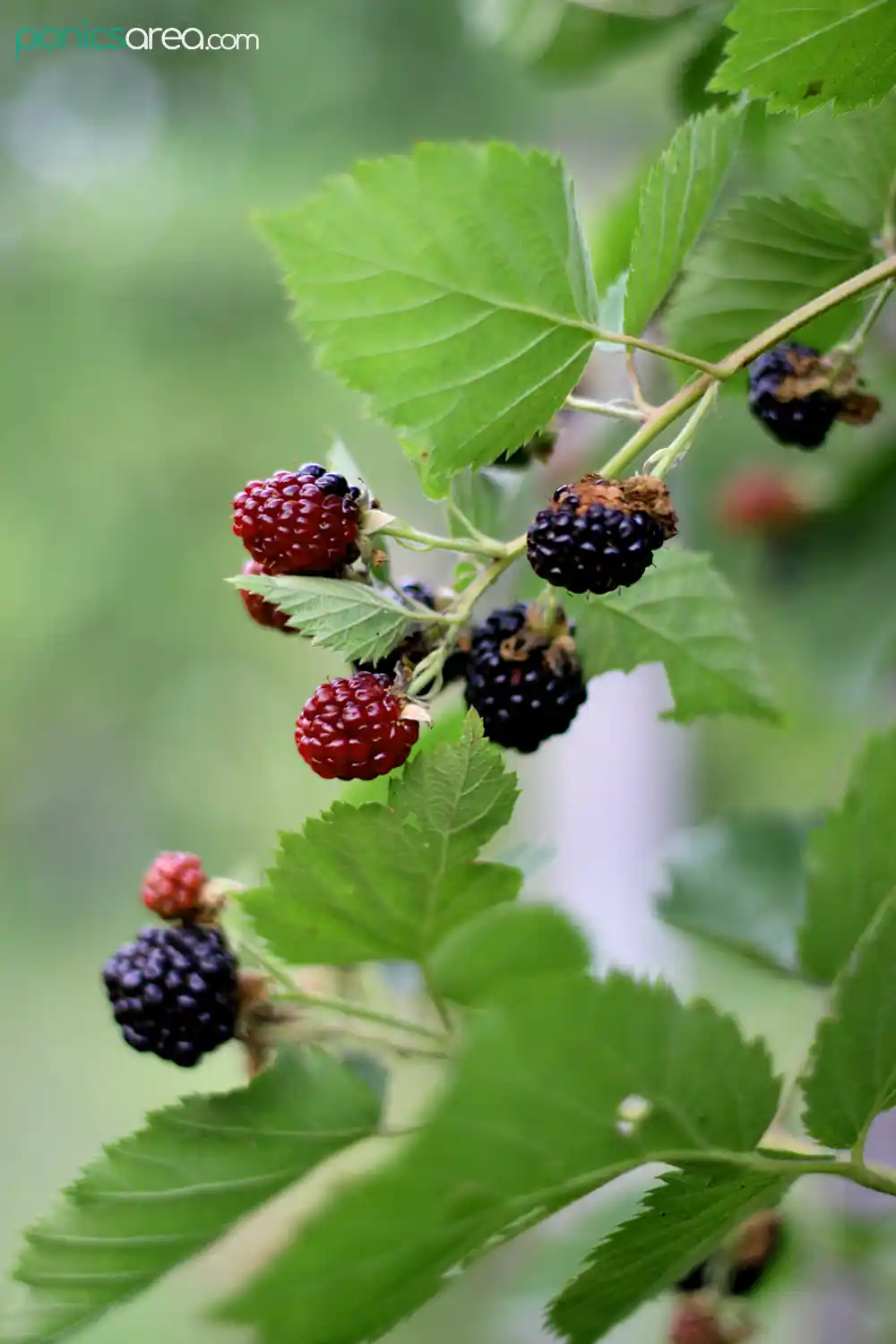
We already said that the answer to the question when do blackberries bloom is somewhere between mid-April to early May. It depends on where we live.
Now, let’s see how fruits develop and when they’re ready for harvest.
After being pollinated, blackberries take 35 to 45 days to mature.
Once the first blooms open, it will take around 60 to 70 days for blackberries to start ripening.
One way to tell for sure that blackberries are starting to ripen is that the fruit starts growing in size. After that, the color changes from green to red to deep black.
Harvesting season can be from mid-June to early October.
How to Grow Blackberries At Home
If you want to know the exact answer to the question when do blackberries bloom, I challenge you to find it by yourself by growing your own blackberry plants at home.
I recommend giving blackberry plants a try because, once the plant is established, you won’t need to concern yourself with it too much.
Depending on which blackberry variety you purchase, you can have fruits the next year (primocanes), a couple years after transplanting or after three years from planting.
Let’s see what we need to make that happen.
1. When to plant
It’s preferred to plant the nursery-bought plant in early spring.
Trim the very long or broken roots.
2. Buy a live blackberry plant
You only need to buy one blackberry plant, you don’t need a couple for the bush to produce fruits. Blackberries are self-fertile so there’s enough to have a single bush for fruit production.
Only buy more than one plant if you have enough space and you want to harvest more fruits than you know what to do with them. That won’t be a problem if you have a large family.
If you want to buy live blackberry plants and transplant them in your garden, you should definitely do it. I would advise you to take things even further and buy a couple of raspberry plants and a few blackberry plants.
It’s the easiest way to grow all these fruits. I highly recommend buying a live plant over choosing to grow these bushes from seed because that takes a lot longer. You can skip directly to the good things.
By the way, I thought it would be interesting to let you know that blackberries and raspberries are not true botanical berries. These two are actually called aggregate fruits. Blueberries, bananas, tomatoes, avocado are true botanical berries, which is a bit crazy but a fun fact to know.
3. Where to grow blackberry bushes
The first thing you should know is that blackberry plants can also thrive in the shade. Blackberries are some of the few fruits that can grow successfully in shade.
If you have an unoccupied spot in your garden that isn’t suitable for any of your other bushes because of its shady location, you can use that spot for transplanting your purchased blackberry plant.
However, if you have a spot that receives full sun that’s great because blackberries plants thrive in full sun.
Both options work, these fruits are not too demanding and they adapt easily, which I love.
An important thing to keep in mind is that a mature plant can have a spread of 13 feet (4 meters) or more. Make sure that it has enough space.
Moreover, you should plant blackberries and raspberries at least 100 feet apart to avoid disease issues. Plus, raspberries don’t get along well with other plants.
4. Soil
Blackberry plants thrive in well-drained sandy or loamy soils.
Compost in the soil will improve aeration and drainage. And it increases water-holding capacity.
You can add a 2-4 inch layer of compost when you plant.
The topsoil can be mixed with dehydrated cow manure, compost or peat moss.
Don’t plant them in soil that gets waterlogged.
When you dig the whole, make it twice the size of the root mass.
5. Watering
The first time you should water your bush is immediately after transplanting it from the nursery container.
Add mulch to prevent weeds and to maintain consistent moisture.
It’s important to maintain a moist soil during the growing season.
The bushes will require about 1-2 inches of water per week from mid-May through October.
A constant moist soil is the best and it will prevent you from overwatering. It’s similar to the watering we do for many other plants, including for vegetables with shallow roots.
6. Fertilizing blackberry plants
You can use compost or manure or an organic fertilizer.
Apply compost and manure in the late fall or early winter.
Moreover, we can also use a balanced fertilizer (10-10-10 or 20-20-20) at least once a year. A balanced, slow-release granular fertilizer can be perfect.
We can fertilize as growth starts to appear in early spring.
In addition, we can add a bit more fertilizer at bloom if we notice that the plant lacks vigor.
Some people also do another round after the harvest is complete. Others stick to fertilizing the plants just once in the spring. It depends on how the plants look, that will tell you if once a year is enough. It should be.
7. Pruning
We prune our herbs and tomatoes and cucumber plants to mention just a few.
But we can also prune our blackberry bushes to increase fruit yield. It encourages new growth and refuses insect and disease risks.
You can prune in the winter and in the summer. I recommend this article if you’re interested in reading more about pruning techniques.
Can you grow blackberry plants in pots?
Even if we grow in pots or containers, we’ll still be interested to know the answer to the question when do blackberries bloom. The same mid-April to early May answer can apply but it also depend on where your container is placed.
1. Container size
You can definitely grow a blackberry bush in a pot but it needs to be big.
A half whisky barrel is the size you’re looking for. Or get a pot as large as 24 to 36 inches across.
Obviously, any container you end up choosing needs to have drainage holes.
Blackberry roots grow about 12 inches (30 cm) deep. They could be considered shallow-rooted plants.
However, the lateral growth can spread out to 24 inches. That’s why we need a container as large as 24 to 36 inches across.
As the bush continues to mature, prune it regularly to contain its growth and increase fruit yield.
The plant will also require a trellis system or a stake to lean on to.
2. Soil
You can use potting soil rich in organic matter or use a topsoil blend to fill in the bigger pot you chose and around the roots after you’ve removed the bush from the nursery container.
If you want to make your own soil, mix in equal parts peat moss, coarse builder’s sand and perlite.
Add this mix to the bottom of the pot to allow your bush to be planted at the same level as they were planted in their nursery container.
Blackberries are perennials
Another thing we should know about these plants is that blackberries are perennials, which means that the roots survive year after year.
The canes above the ground are biennial because the canes grow vegetatively for a year, bear fruit the next year and then die.
The plant produces new canes to replace the vegetative growth that died. Thus, blackberry bushes produce fruit every year.
Each year, we can give an answer from personal experience to the question when do blackberries bloom if we grow our own plant at home.

